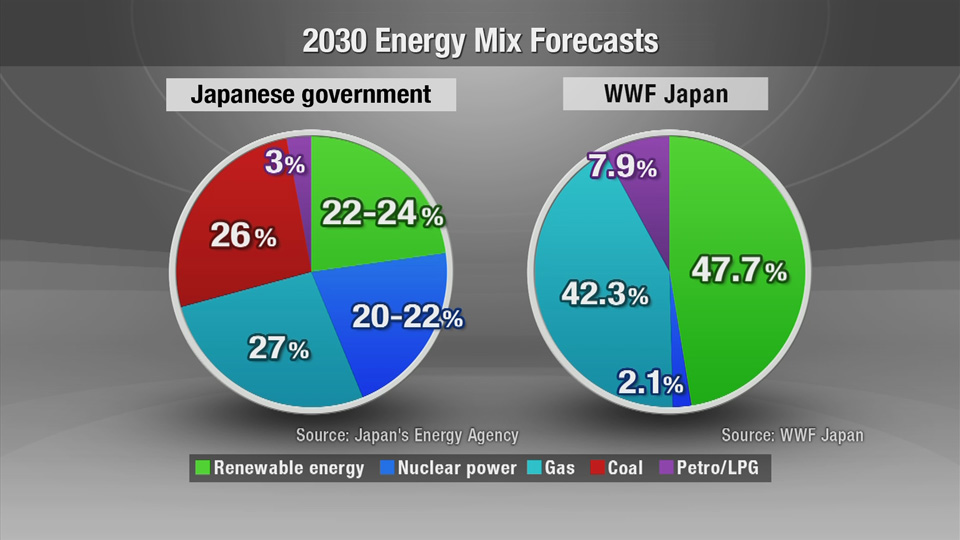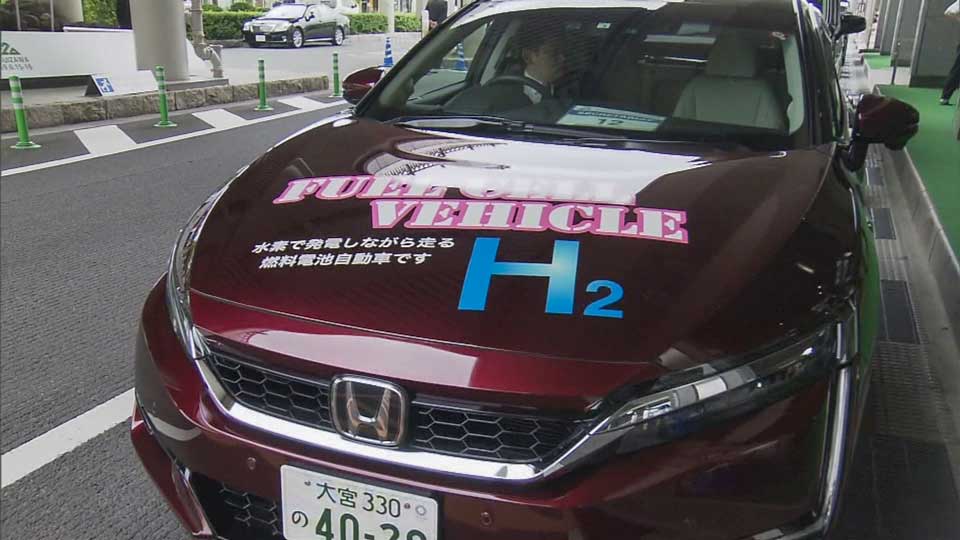Abandoning the use of coal
WWF Japan energy policy analyst Konishi Masako leads the team that made the action plan. In the proposal, they say Japan must increase its greenhouse gas emissions reduction target for 2030. They say this would require a drastic change in the country's existing energy mixture plan, and would necessitate a total abolition of coal use.

Japan's potential for renewable energy
WWF Japan commissioned a private organization called Research Institute for Systems Technology to evaluate how the country could transition with its current electric infrastructure to a coal-free and nuclear-free power supply.
The group simulated wind and solar electricity generations at 842 points across the country by using hourly data from the Japanese Meteorological Agency throughout the year.
It was concluded that wind and solar power can complement one another in each region, with Japan capable of producing nearly 50% of its power requirements using renewable energy by 2030.

Konishi notes the 2030 energy mix forecast by the WWF requires the reorganization of Japan's electricity grid. She says that is largely a corporate challenge for electricity companies and urges the Japanese government to support the required changes.
Tapping into hydrogen
Konishi claims Japan has a powerful tool up its sleeve: hydrogen energy technology. She has high hopes on Japan becoming a leader in the growing field.
"When you fill energy demand with natural sources like solar and wind that are reliant on weather conditions, you end up producing a lot of surplus energy," Konishi says. "But this surplus energy can be used to break down water into hydrogen. And in this way, Japan has a new source of energy called "green hydrogen."

Going green amid an economic slump
As Japan deals with the economic effects of the coronavirus, Konishi welcomes signs that the government sees decarbonization as a possible growth strategy. It announced this month that it will establish a $19 billion fund to realize its net zero goal by 2050.
The WWF remains concerned about whether Japan can let go of coal. From a broader perspective, Konishi is hopeful that Japan can seize an opportunity to bolster its pandemic-struck economy and help the environment at the same time.

